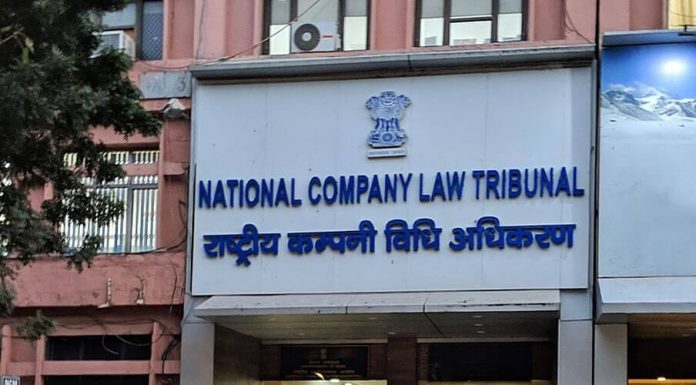This article is written by Vishnu Ameya pursuing Certificate Course in National Company Law Tribunal Litigation from LawSikho.
Table of Contents
Introduction
Compounding is a settlement mechanism under which the party in default or the offender pays some prescribed amount of money to the competent authority in lieu of getting prosecuted. The provision for compounding is not a new phenomenon and has been in existence in form of Section 621A of the erstwhile Companies Act, 1956, which says “a company or an officer thereof who has committed or who is alleged to have committed an offence can apply for compounding the offence.” Section 441 of the current legislation, i.e, the Companies Act, 2013 deals with the concept of compounding of offences. U/s. 441, Compounding as a remedy can be used by the defaulting company or the officers in default of the company as defined in Section 2(60) in case of an offence which is punishable by fine only if committed under the Companies Act, 2013 or the rules and regulations made thereunder.
This article intends to deal with the importance of compounding, the manner in which compounding is done and the entire intention behind compounding. In order to compound an offence, an application for compounding may be filed either to the competent NCLT or the Regional Director based on the threshold limits of the fine.
Threshold limits, i.e, the amount of fine payable
NCLT: Where the fine involved is Rs. 25 Lakhs and above.
Regional Director (RD): Where the fine involved is up to Rs. 25 Lakhs.
What are regarded as offences under the NCLT?
Under the Companies Act, 2013; offences are classified into two types:
1. Compoundable offences
- Offences that are punishable with “fine only”
- Offences that are punishable with “fine or imprisonment”
- Examples of compoundable offences: (The examples covered below are illustrative and not exhaustive)
- Non-disclosure of related party transactions.
- Failure to appoint, independent director/women director, by such companies which are bound by law to appoint.
- Non-compliance with accounting standards issued by the ICAI.
- Default/delay in filing statutory documents.
- Non-adherence of secretarial standards.
- Incomplete disclosures.
- Financial statements not in the prescribed format.
2. Non-compoundable offences
- Offence punishable with ” with imprisonment only”
- Offence punishable with ” with imprisonment and fine”
- Offence cannot be compounded in case a similar offence committed has been compounded and the period of three years has not expired. (Section 441(2))
- Offence cannot be compounded in case either the investigation has been initiated or is pending (Section 441(1))
The NCLT is empowered to compound such offences which fall under the purview of compoundable offences u/s. 441 of the Companies Act, 2013, when an application is made by the defaulting entity to the appropriate authority by paying such fee as may be prescribed in order to avoid prosecution.
Importance and advantages of compounding
The existence of criminal provisions in corporate law may act as a deterrent in the promotion of business and flow of capital. Compounding of offences helps in mitigating this as, compounding of offences essentially summary proceedings and is less time-consuming. There is no prosecution of the officer in default and the compoundable offence is made good by paying the fee as decided by the NCLT/RD. The fee so paid is not a penalty and cannot act as a ground for disqualification of the director. The fine so charged cannot be more than the penalty prescribed by the relevant legal provision.
Procedure for compounding
1. Hold a board meeting
Before filing an application for compounding the company must hold a board meeting to consider and approve the filing of the application for compounding and authorize the CS or CFO or any director or law firm/practising chartered accountant/practising company secretary or any person by passing a resolution. Such person shall be the authorized person for filing the application for compounding on behalf of the company or the officers in default.
2. Documents to be filed
- Under Section 441 of the Companies Act, 2013 r/w. Rule 34 of the NCLT Rules, 2014; an application in e-form GNL-1 is to be made to the Registrar of Companies (ROC) along with the prescribed fee.
- Along with the e-form, the following documents are to be included:
- Notice of admission in such form and format as prescribed in Rule 34 of NCLT Rules, 2014.
- A notarized company petition containing general information about the company along with a prayer for compounding. The company petition must also contain the Show-cause notice issued by the concerned ROC, reply by the company and the company’s board resolution authorizing the application for compounding.
- An affidavit verifying the application by the authorized person stating that the contents in the application are true and have been understood by him.
- Any other relevant document based on the nature of the application.
- The company is also bound to file the documents in e-form in physical form to the competent ROC.
3. Forwarding by the Registrar of Companies (ROC)
The e-form and the supporting documents would be forwarded to the NCLT or the Regional Director as the case may be by the ROC.
4. Compounding of the offence by the NCLT
Once the NCLT/RD compounds the offence taking into note the quantum of fine involved, the Company is legally bound to intimate the ROC within 7 days of such order passed by the NCLT/RD in Form INC-28 to the ROC.
How is compounding done under the competent authority?
Once the NCLT/RD receives the application for compounding, the concerned authority would send a notice to the company for personal hearing and the authorized representative of the company is bound to make their submission and admit the contravention committed under relevant sections of the Companies Act, 2013 and rules made thereunder.
After scrutinizing the submissions made by the authorized representative of the said company, the NCLT/RD passes an order stating that:
“That the offence committed, under section 441of the Companies Act 2013, for violation of section…… (no)…..of the Companies Act 2013, be compounded on payment of compounding fees of Rs…………by the company and Rs……….. each by … (no)……..of the directors.”
Payment of fees
The company is bound to pay such fees as specified by the competent authority within the period of time mentioned by the authorities and the details of payment including the challan no., the date of the payment must be provided to the authorities.
Order of the competent authority
Once the prescribed amount is received by the competent authority, the competent authority would spell out that the applicants had paid the aggregate compounding amount.
The table would be in the format below:
|
Sl. no. |
Defaulters/ applicants |
Challan no. |
Date of challan |
| 1. |
Name of company |
||
| 2. |
Name of manager |
||
| 3. |
Name of director |
||
| 4. |
Name of director |
||
| 5. |
Name of director |
The order so passed ends with the words “The offence is therefore compounded now”. The said order would be signed, stamped and sealed. A copy of the same is sent to the ROC.
Judgements pertaining to compounding by NCLT/RD
1. Viavi Solutions India Private Limited v. Registrar of Companies
The judgement of the Hon’ble NCLAT in the case of Viavi Solutions India Private Limited v. Registrar of Companies, NCT Delhi and Haryana ([2017]203CompCas165) is of prime importance as the Hon’ble NCLAT had laid down factors to be considered when an offence is compounded. The Hon’ble NCLAT observed that the NCLT has the power to compound offences before initiating prosecution, the NCLT/RD must take note of the bigger picture and the circumstances. The Hon’ble NCLAT laid down the following factors to be taken into consideration while compounding any offence/s:
- The nature and gravity of the offence.
- Whether the act is intentional or unintentional.
- The period of default.
- The report of the ROC.
- The maximum punishment prescribed.
- Whether the defaulter has made good the default.
- The financial condition of the company and defaulters.
- Whether such an offence was committed previously.
- Whether the offence is continuous or one time.
- Whether petition for compounding is suo moto before or after notice from Registrar of Companies or after imposition of the punishment or during the pendency of a proceeding.
- Whether the act of the defaulter is prejudicial to the members, the public in general, or not.
- The share value of the company.
2. Pahuja Takii Seeds Ltd. & Ors. v. Registrar of Companies
In the case of Pahuja Takii Seeds Ltd. & Ors. Vs. Registrar of Companies, Delhi & Haryana and Ors. (Company Appeal (AT) No. 80 of 2018) the NCLAT was to determine:
- Whether the Companies Act, 2013 bars Joint Applications for compounding of offence by a defaulting company along with its officers in default.
- Whether joint applications for compounding of the same offence committed in different years can be filed.
The Hon’ble NCLAT ruled that Section 441 neither prohibits filing a single application for compounding the same offence nor does it prohibit a joint application filed by the Company along with the officers in default. The Hon’ble NCLAT observed that “procedures are deemed to be permitted unless expressly barred”.
3. M/s. Cinepolis India Pvt Ltd & Ors. v. Registrar of Companies
In the case of M/s. Cinepolis India Pvt Ltd & Ors. Vs. Registrar of Companies, NCT of Delhi & Haryana, New Delhi (Company Appeal (AT) No.137 of 2017), the Hon’ble NCLAT was to determine:
- Whether the NCLT, u/s. 441 compound offences which are punishable by both imprisonment and fine.
The Hon’ble NCLAT ruled that offences that are punishable by ‘imprisonment only’ cannot be compounded in light of the restriction placed by Section 441(6). However, when the offence is punishable by both ‘imprisonment or fine or both’ the NCLT shall act as per the procedure laid down in clause (6) of Section 441 by taking permission of the special court.
4. RSPL Ltd., (Company petition no. 20/ALD of 2017)
In the case of RSPL Ltd., (Company petition no. 20/ALD of 2017) the company had filed its cost audit report after a delay of four years of the prescribed time period. The NCLT (Allahabad bench) held that the application for compounding is to be allowed as the company, though acted belatedly, had shown its bona fide effort to make good the default.
Conclusion
Compounding acts as a mechanism for the defaulting party to admit the default and make good the default. Many companies are preferring compounding as it is a hassle free summary proceeding that is resolved in a lesser period of time compared to court proceedings which take a toll on the money, time and goodwill. Though compounding acts as an efficient mechanism in ensuring the lesser graver offences committed are made good, it should be ensured that such offences are not committed in the first place as this may amount to abusing the very object of the legislation.
References
- https://www.icsi.edu/media/portals/70/Offences%20under%20CA,%202013%20&%20Compouding%20441.pdf
- https://www.corporateprofessionals.com/articles/demystifying-compounding-under-the-companiesact/#:~:text=Who%20can%20 compound%20the%20 offences,authorized%20by%20the%20Central%20Government
- https://www.mca.gov.in/SearchableActs/Section441.htm
- https://corporate.cyrilamarchandblogs.com/2020/06/a-fresh-start-for-companies/#more
- https://indiacorplaw.in/2020/01/decriminalisation-company-law-welcome-change.html
- Prof R Balakrishnan, Condonation of delay and Compounding of offences (provisions under the Companies Act 2013), [2021] 125 taxmann.com 51 (Article).
Students of Lawsikho courses regularly produce writing assignments and work on practical exercises as a part of their coursework and develop themselves in real-life practical skills.
LawSikho has created a telegram group for exchanging legal knowledge, referrals, and various opportunities. You can click on this link and join:
 Serato DJ Crack 2025Serato DJ PRO Crack
Serato DJ Crack 2025Serato DJ PRO Crack











 Allow notifications
Allow notifications


